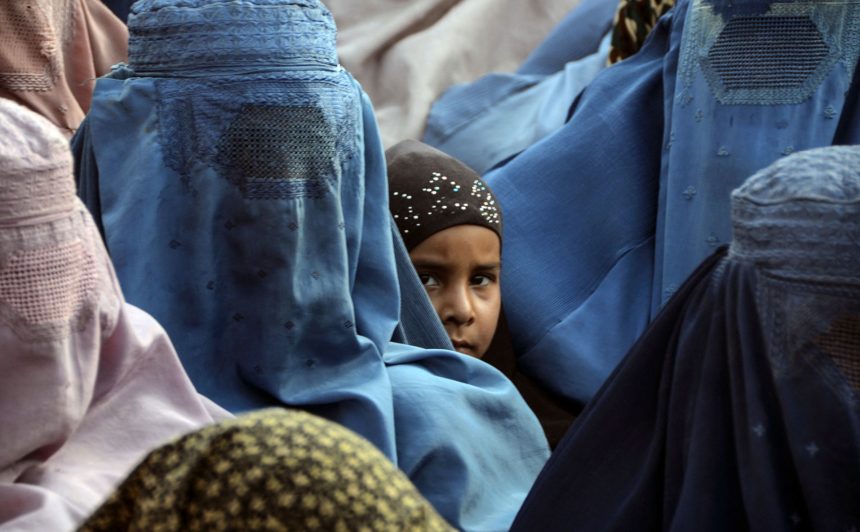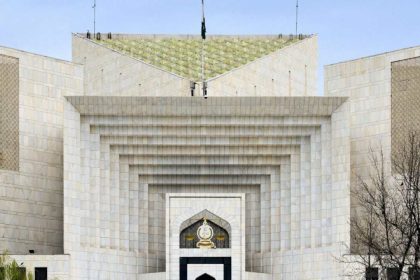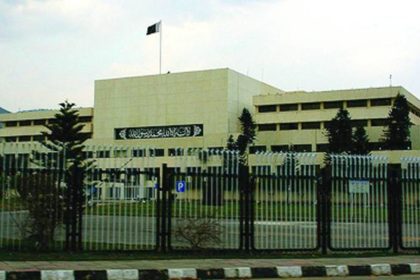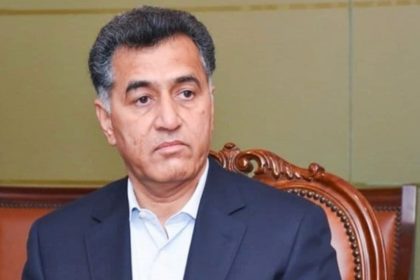A few days ago, I met Akhuna Sabeera, an Afghan Hazara law graduate from Quetta who now teaches. She has been living in Pakistan since the age of 12. While traveling for her mother’s medical treatment, she was told to get off a bus on suspicion of being a ‘foreign terrorist’.
She pleaded with the police to let her go to the hospital, and even showed the Afghan Tazkira and other documents to prove her legal status in Pakistan. “Wherever we go, we face harassment, and no one wants to hire us, which is why my father drives a rickshaw for a living. Despite being in a Muslim country, we still aren’t accepted here,” she said.
After law school, Akhuna Sabeera pursued business studies because she was not allowed to practice law and even faced harassment at workplaces where she had to hide her identity. “When we came to Pakistan, we didn’t understand environment or the language here. From rickshaw drivers to hostels or houses, everyone charged us double the price for everything,” Razimi Qasimi told Jarida Today.
“Over time, we became familiar with the language, and the people, and these practices became clear to us. This attitude towards Muslim women coming from a neighboring country really hurts me,” she said. “We receive visas for only three to six months, and getting them extended is difficult as well as expensive,” she said, adding that the police started harassing the refugees with warning of deportation time and again.
She said that a friend received a similar threat the night her visa expired. Despite showing her tracking identity, she was told she would be taken to the Torkham border if she didn’t get a visa by morning. Out of fear, she ran away. “The next morning, the police came to my house, demanding to know her whereabouts. I became anxious about my visa too and had to ask many people for money until someone finally helped pay for the extension,” Razimi Qasimi told Jarida Today.
“The police knock loudly and shout as if we are criminals, making our neighbors and landlords aware of our situation, which they then exploit. Believe me this behavior has traumatized me, they show us no respect at all,” she said. “I went for several job interviews, but once the owners learned of my situation, they began to speak inappropriately and misbehaved with me.”
She said that at one office, an employer offered to cover her expenses if she became his girlfriend. “The two girls living with me worked at a call center for two months without pay. Their employer, knowing they were refugees living alone, threatened to report them to the police or a cleric if they demanded their salaries, calling them ‘infidels’,” she continued.
“Women haven’t been able to send their young children to schools for three years because they lack necessary identification cards. Once I tried to withdraw money from the Western Union in Quetta, but the agent saw ‘Hazara’ on my passport and refused to give me the money, citing a need for a two-year visa. Whenever we seek any work, if they find out we are Hazara women living alone, the harassment begins,” Razimi Qasimi said.
“Despite having both a passport and a valid visa, we are disrespected at every step,” an Afghan girl, seeking anonymity, told Jarida Today. She said that the landlords charge them advance rent for ‘security’ but refuse to refund it when they want to leave, often threatening them with the help of their friends and the police, who then demand hefty money. When a single girl tries to rent a house, the landlord often starts harassing her after taking the advance payment.
Razimi Qasimi introduced this writer to Sabeera Mosae, a 30-year-old with a Master’s in Language and Literature. She has worked as a teacher, a journalist, a social services facilitator, and an activist against the Taliban administration. Sabeera Mosae shared her feelings of insecurity and the risk of deportation due to her civil activities, particularly her advocacy for women’s and children’s rights in Afghanistan. She leads the Women’s Empowerment Committee in the Citizen Contract project and works in the media as a presenter and reporter.
Following the Taliban’s takeover on September 6, 2021 in Afghanistan, Sabeera Mosae faced threats and attacks on her home, which forced her to escape. Her involvement in protests and her identification as a Hazara made her a target. Her situation worsened when her name appeared on the Interior Ministry’s ‘blacklist’ in February 2022, leading her to flee to Pakistan in March 2022. In Pakistan, Sabeera Mosae continued her advocacy but faces severe security and economic challenges.
She struggles with high medical costs for her ailing parents and herself, having suffered two miscarriages. Visa renewals are difficult and threaten her security. Xari Jalil, a journalist, shared her experience while visiting Hazara women in Islamabad for a story. “The Afghan Hazara women I met were in poor mental health. Many lived in cramped conditions, and despite their education, they struggled to find work,” she said.
“Although Afghan Hazara women are part of the educated middle class – some are civil servants, NGO workers, or lecturers – they faced severe discrimination and persecution from the Taliban in Afghanistan,” she said, adding that their movements were monitored, and they received death threats if they couldn’t hide their identities. In Pakistan, she said that they have had to encounter further hardships.
Additionally, Xari Jalil also met an Afghan community leader who has lived in Pakistan for 30 years. Since the family did not have a permanent status, he had to marry his daughters off at a young ago. His wife still doesn’t understand Urdu, which highlighted the community’s isolation. Khanum Salarzai, a journalist from Bajaur Agency, explained that Afghans from Kunar usually migrate to Pakistan for business.
She noted that their language, culture, and lifestyle closely resemble those of local tribes, leading to establish relationships with the community. She highlighted that Afghans maintain strict control over their women, confining them to their homes. She said that local traditions, which are intended to benefit women, often inadvertently impact them negatively. She said that the women who marry Afghan men and move to Afghanistan face significant challenges.
Zeshan Magsi, another journalist advocated for granting permanent residence and additional facilities to Afghan citizens, emphasized their contributions to the region. Afghans have established transport services, clothing and electronics stores, and plazas in Pakistan. However, some are involved in illegal activities such as arms trafficking, drug dealing, and smuggling, possibly due to a lack of official recognition and civic engagements.
Dr Fatima Ali Haider, an Eye Movement Desensitization and Reprocessing (EMDR) therapist and co-founder of the Grief Directory, explained that trauma never happens in isolation. “My trauma training has taught me to view it sociologically, recognizing its many causes and effects,” she said, as she has worked with Hazara refugee women in Pakistan and noted that some Afghan girls who arrived in Pakistan as children studied in camps and worked as domestic help.
“When a girl marries a Pakistani citizen, even her nieces and nephews are sometimes registered under the husband’s name for schooling, causing discrepancies between their legal and actual identities. Some Pakistani citizens sell the identity cards of their deceased relatives to Afghans, seeking legal status, charging them for this privilege.” She explained that trauma begins when women flee their homes in fear and move to an unfamiliar country.
“Without a father or brother, secondary trauma often occurs, especially in war zones. Within their communities, women are frequently exploited and lack security, which adds to the trauma of migration.” When multiple traumas accumulate, she said that they become immeasurable, and no one – from the UN to the countries involved in the conflict – is held accountable. “This has led to increasing issues like drug abuse and domestic violence among these communities.”
Dr Fatima Haider recounted a woman whose visa extension to visit her husband in Australia was denied. She was told she needed her grandparents’ documents from Afghanistan, a situation that underscores rampant corruption and bribery. “The government does not adequately address gender concerns. There is an urgent need for gender experts in policymaking to establish effective support systems, including those for refugees.”
Fatima Atif, a human rights, peace, and culture activist and a member of the People’s Commission for Minorities Rights (PCMR), is a vocal advocate for the Hazara and Afghan communities. “Two years ago, many refugees fled to Pakistan to escape the Taliban. Due to visa restrictions, some entered without documents, and those without money were left living under open skies, where reports of exploitation and violence, including rape, emerged.”
As a result, she said that they staged a seven-month sit-in in Islamabad, with 4,000 people from three major groups, including Hazara, demanding safety and security for all these people. In August, “I organized a seminar with volunteers to bridge the gap between the government and the refugees and to find a solution to this issue. We invited representatives from various governmental and non-governmental organizations. However, none of these institutions had data on the new migrants, revealing their lack of seriousness,” she said.
She criticized notion of deporting refugees back to Afghanistan, equating it to sending them to their deaths. Jaseem Ahmed Bhutto, a lawyer specializing in human rights and cybercrime, criticized Pakistan’s legal framework and its lack of clear policy on Afghan refugees. He highlighted issues with the deportation process, which has been chaotic and lacking due process. He proposed reforms such as adopting systems like that of Canada’s to prioritize vulnerable asylum seekers, improving awareness campaigns for legal registration, modernizing border controls, and creating permanent residency options for refugees.
The lawyer called for a coordinated effort from various stakeholders and better media coverage to address the refugee issue more humanely. He pointed out that Pakistan’s legal framework, including the Foreigners Act 1946 and the Citizenship Act 1951, needed modernization to align with the UNHCR guidelines and international standards. The implications of Afghan migration are significant, as undocumented migrants can influence political landscapes, potentially affecting election outcomes and legislation.
Jaseem Ahmed Bhutto suggested implementing a process similar to that of Australia’s offshore refugee camps, which provide essential support and time for legal processes before deportation. He argued that Afghans deserved a humane approach rather than expulsion without proper procedures. He highlighted challenges faced by undocumented Afghans, such as inability to access government services and education, and the risk of losing their businesses or homes. He proposed forming a committee with various stakeholders to develop effective policies.













Disheartening to see their situation. The government should immediately act emphatic towards to marginalized. Kudos to Rabbia Arshad for bringing light to the plights of Afghan nationals.